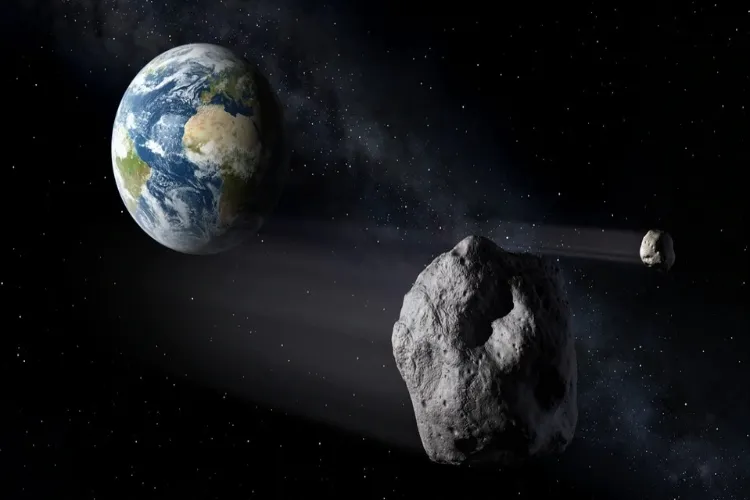
New Delhi
The risk of Asteroid 2024 YR4 colliding with Earth or the Moon in December 2032 remains relatively low, scientists confirmed on Monday.
Discovered in December 2024, the asteroid, dubbed a potential "city-killer," has raised concerns due to its enhanced chances of impacting Earth in 2032. However, Astrophysicist Professor Varun Bhalerao from IIT Bombay reassured that the asteroid’s mass is comparatively low. "As far as Earth as a whole is concerned, the impact would be negligible," he explained to IANS. However, if it were to explode in the atmosphere, it could cause significant damage locally.
Initially, NASA's estimates suggested a 3.1 per cent chance of impact in 2032, but recent observations have lowered this probability to just 0.28 per cent. NASA confirmed this update in a post on social media, stating: “New data gathered last night (Feb. 19-20) dropped the December 2032 impact odds of asteroid 2024 YR4 to 0.28 per cent. Monitoring continues.”
Davide Farnocchia, a navigation engineer at NASA’s Jet Propulsion Laboratory, further clarified: “The possibility that 2024 YR4 could impact Earth in 2032 is really remote. It will pass within one and a half times the distance to the Moon, but the probability of impact is only 0.3 per cent. We will keep updating this probability as we collect more data."
Bhalerao elaborated on the science behind asteroid monitoring, explaining that Earth's mass keeps it moving while asteroids experience small deflections in their paths due to gravitational interactions. "As we collect more data, the uncertainty decreases," he noted.
ALSO READ: Sajida Mullah poised to become officer leaving failures behind
With reports suggesting the Moon might be a possible target, Bhalerao pointed out that the chance of an impact there is even smaller, noting that the Moon is physically smaller and the asteroid not massive enough. "The probability of hitting the Moon is about 1 per cent," NASA confirmed.
When asked about the likelihood of other asteroids hitting Earth, Bhalerao explained, “Every time you see a meteor shower, it's an asteroid hitting Earth, except they burn up in the atmosphere. Our atmosphere acts as a shield to protect us.” However, he cautioned that larger asteroids, particularly those around a kilometre in size, could have catastrophic consequences. “Something like that probably killed the dinosaurs," he said, highlighting the importance of ongoing monitoring.
